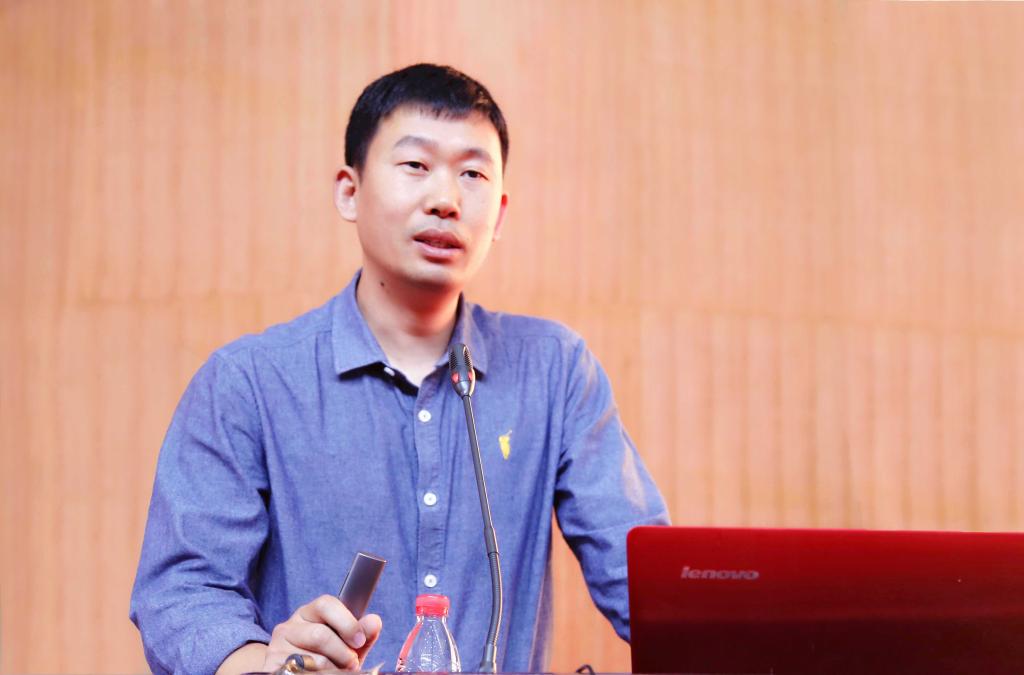
Ertao Wang, born in 1979, is now working as a researcher at CAS Center for Excellence in Molecular Plant Sciences, focusing on the molecular mechanism of symbiosis between plants and microorganisms.
Recently, his team made a great discovery that fatty acids are the main forms of carbon source transmission in the symbiotic system of plants and mycorrhizal fungi. The “sugar-based” theory which textbooks have long held was thus overturned. The discovery was published in Nature , the world’s foremost scientific journal.
As early as 2010, when he was a postdoctoral fellow in the UK, Wang found that some questions could not be explained by the existing “sugar” theory when cloning symbiotic plant genes.
Mycorrhiza, a symbiosis of fungi and roots of higher plants in the soil, is ubiquitous in the nature, affecting 80-90% of plants. Through mycorrhiza, plants can get more nutrients from the soil and as a return, they offer about 20% of their photosynthesis products to feed the mycorrhizal fungi.
Interestingly, many scientists believe that plants provide carbon source nutrients to the symbiotic fungi mainly in the form of carbohydrates, though no transportprotein has been identified to explain the source of the sugar. What’s more, few questions had been raised against this point over the years.
The conclusion that “sugar may be the main form of carbon source nutrition” was achieved in 1999 by scientist through carbon calibration experiments. Since then, it has been hold true, even though the carbon calibration experiments are no direct evidence at all.
Fatty acids of mycorrhizal fungi, mainly synthesized by plants, has been widely considered as only part of the synthesis of fungal cell membranes, until the idea that “Could fatty acids be the nutrition source?” hit upon Ertao Wang.
Transformation is always much harder than innovation.
To test his conjecture, he started the exploration. “At that time, my research direction was not metabolism, and I was not familiar with this field, either,” he recalled. To better understand the metabolic mechanism of fatty acids, he spent about half a year consulting literature and searching for relevant information. “Is it possible?” he kept asking the people around him, however, there had been very few positive responses. Most of them didn’t take it seriously.
It was until 2013 when he came back to China and established his research group to create conditions to verify his conjecture. “Scientific research is at its prime in China. Both funding and equipment were put in place very quickly,” he said.
When speaking of his connection with biology, he recalled "At the admittance of Henan University in 1999, biology was actually not my first choice when I chose the major. The bond between biology and me, if identified in a loose manner, must lie in my family background of farmer household. I’m very familiar with the corns, beans and other crops which make me feel at ease.”
Besides doctor and researcher, no other titles were printed on his business card. “I'm not an ambitious man, and I’ve never thought that I can do something big,” Ertao Wang said quietly.
In this way, Ertao Wang and his team have been focusing on their study over the past four years. Through a series of stable isotope calibration experiments, they found that fatty acid synthesis in plants is necessary for the symbiosis of mycorrhizal fungi, and there is a special class of fatty acid molecules that can be directly transmitted to mycorrhizal gungi by plant transporters. Their findings systematically show that fatty acids are the main form of carbon source for photosynthesis. The traditional theory in this regard which had already secured its place in textbooks for decades was overturned for the first time in forever.
The important findings were published in the journal Nature lately. Ertao Wang was excited. From paper submission to acceptance, it only took two months,which was the shortest of its kind he ever experienced in his research career. Furthermore, his team also discovered that fatty acids play an important role in preventing powdery mildew in plants.
Ertao Wang works in science with a pure heart, seeking neither prestige or material gain. He told us that the research life, like a bowl of water, is kind of tedious, but simple and pure. Drink more, and you’ll feel the pleasant taste.
Most probably, this is the best status a researcher can get.

 Content
Content


